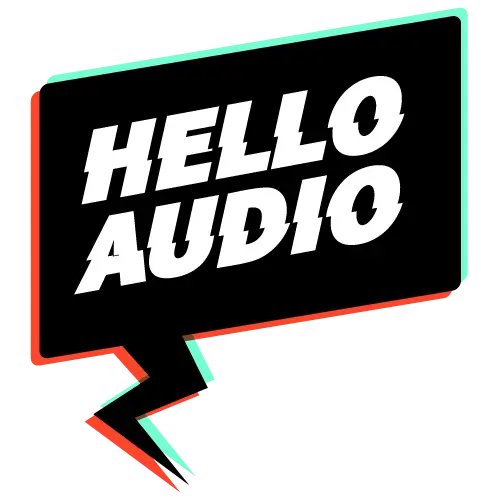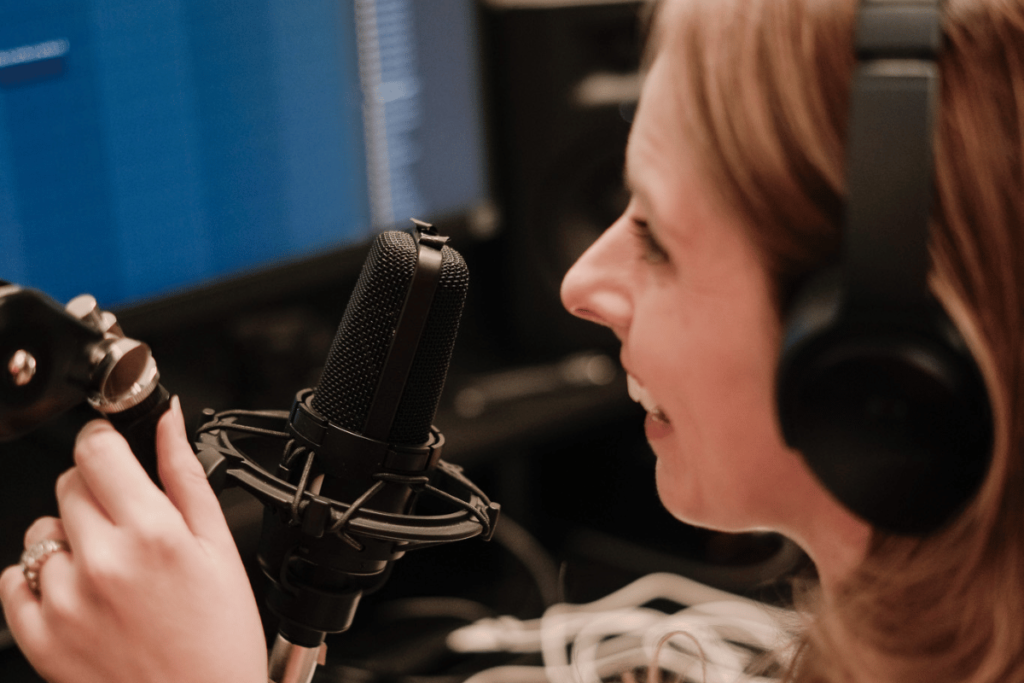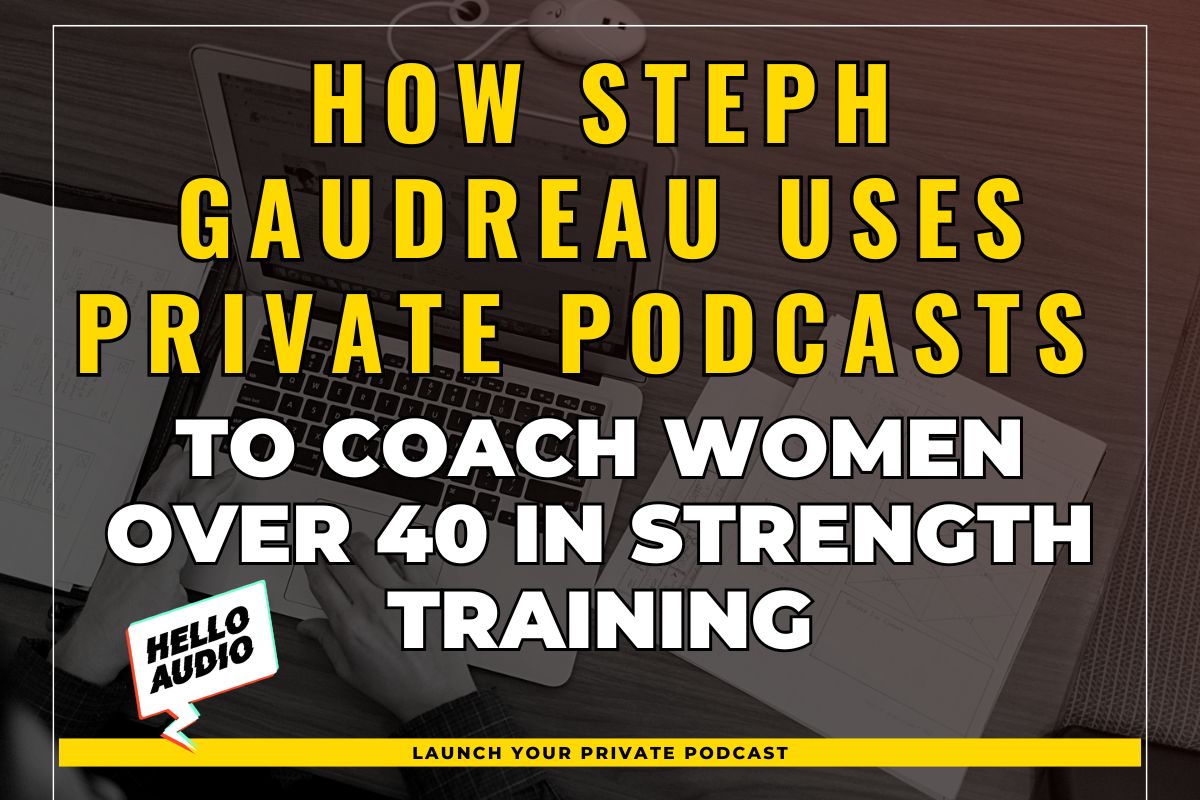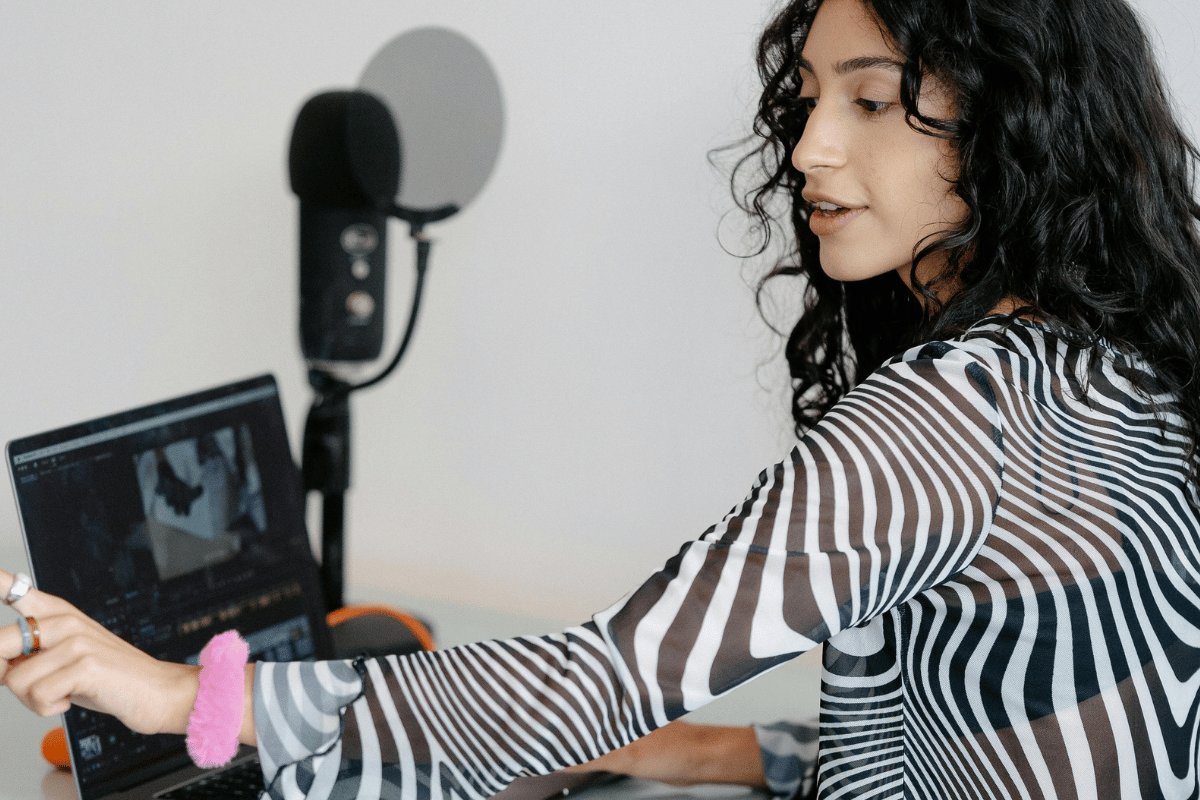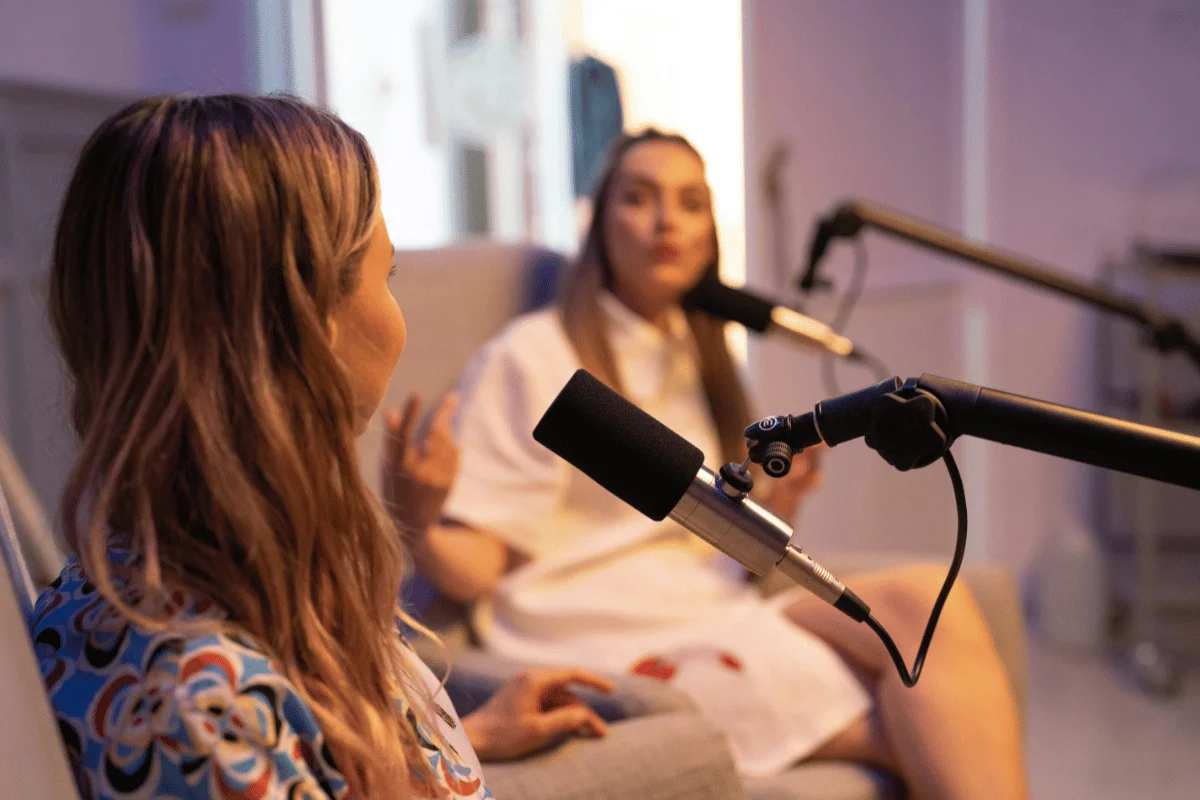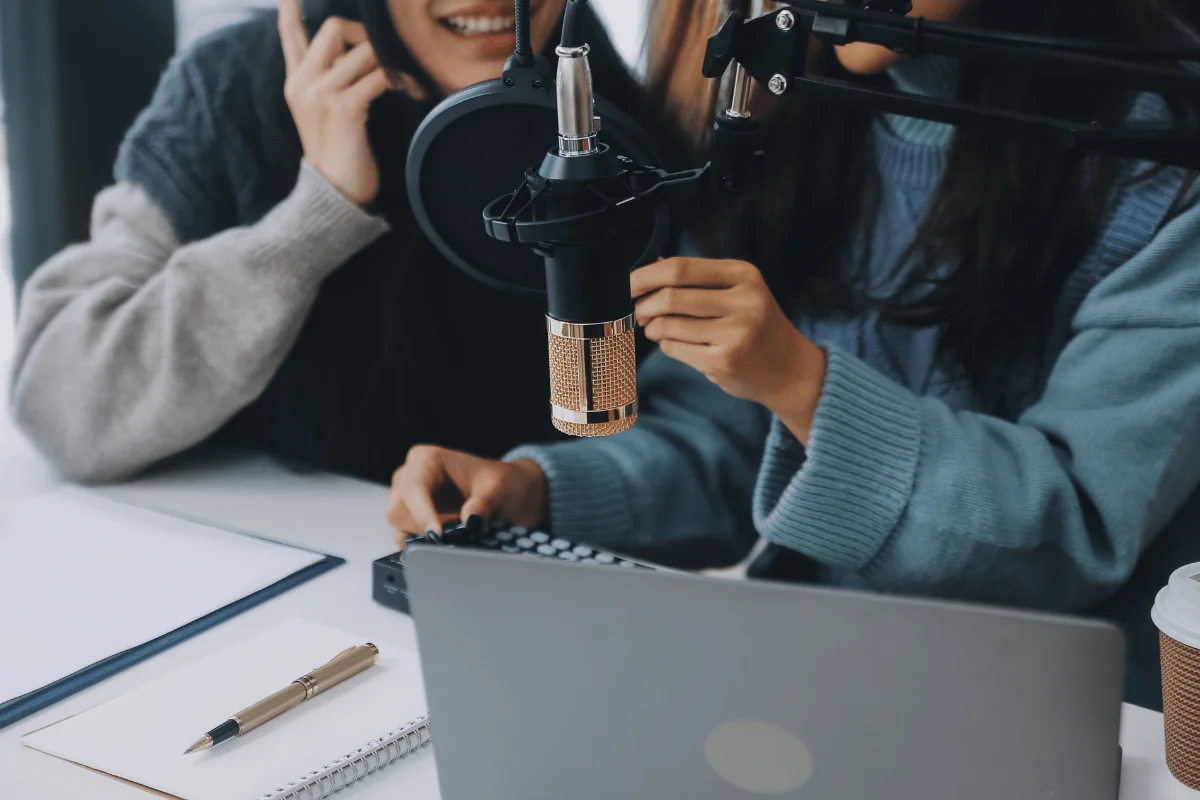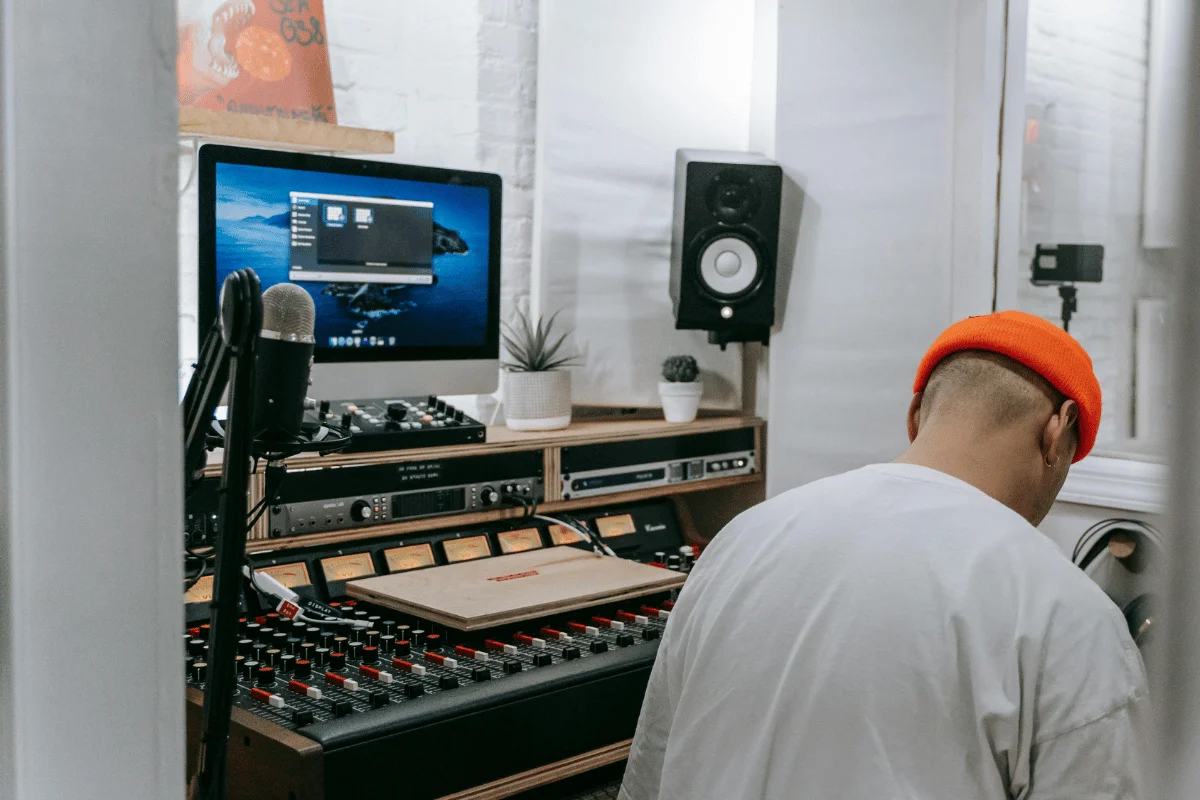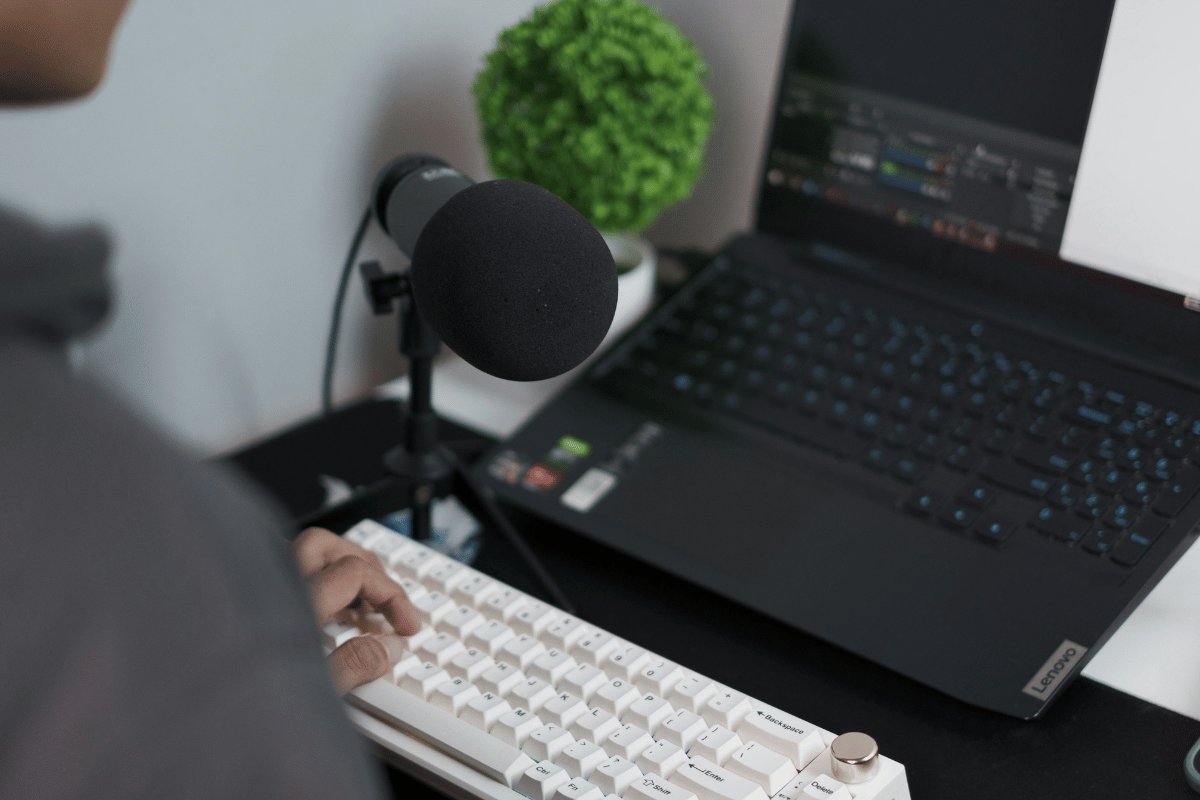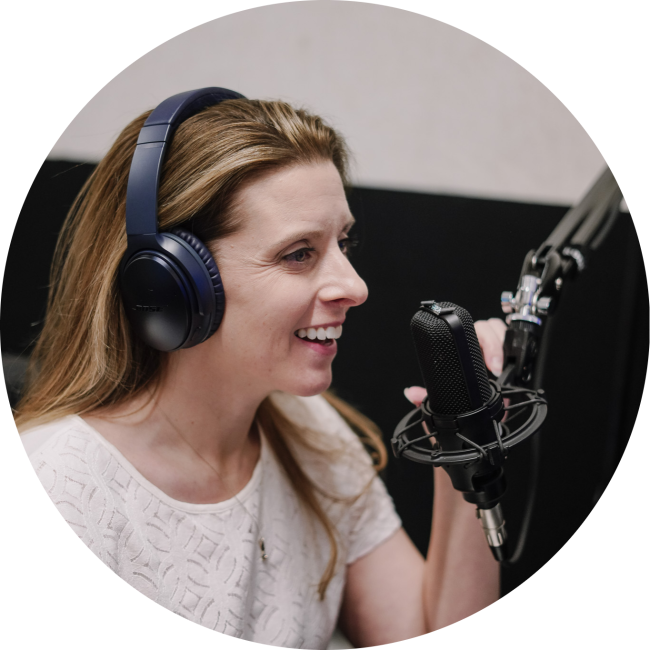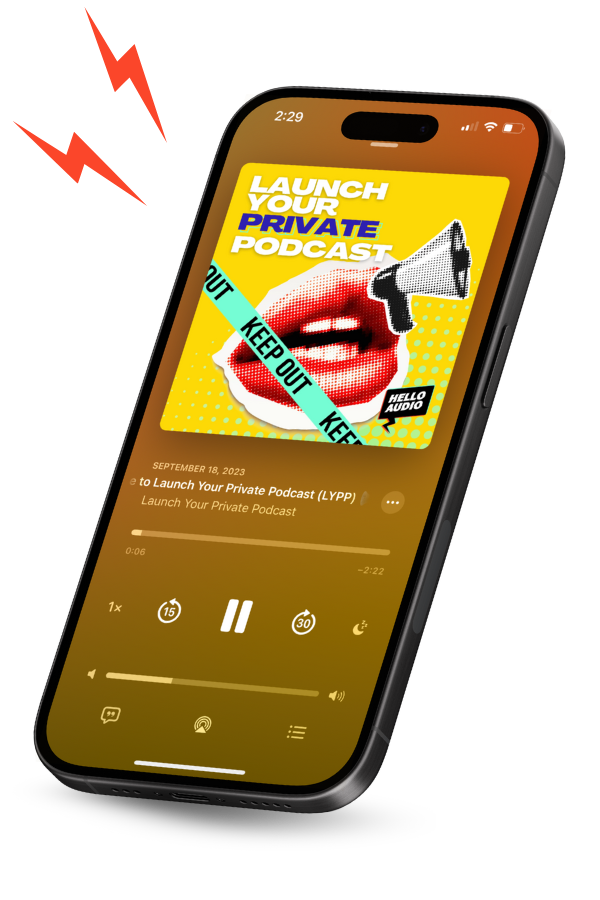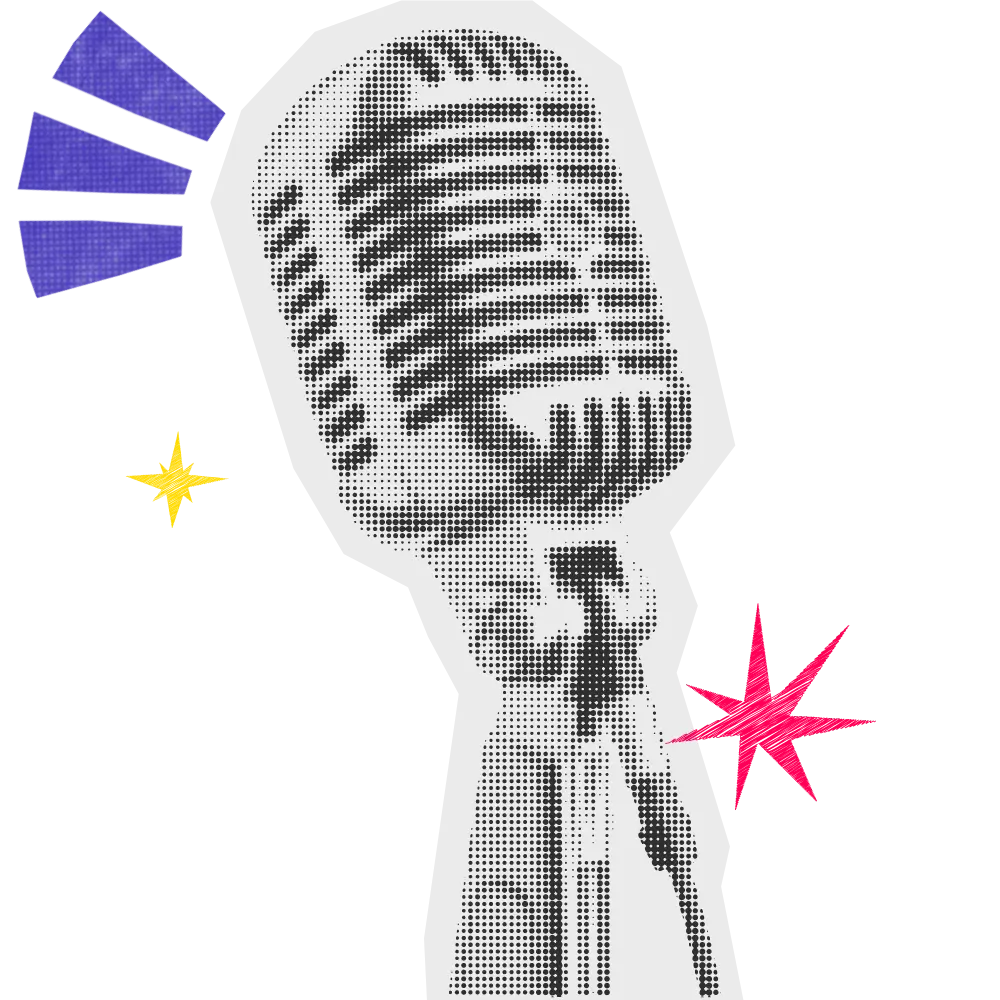Want to start your first video, Zoom, or remote podcast but don’t know where to start? Don’t worry, it’s easier than you think.
With some prep work and the right podcast tools, you can learn how to record a podcast like a pro in no time.
We’ll walk you through the top 3 ways of creating podcasts and discuss the essential tools and software you need.
Let’s jump right in.
TL;DR – How to Record a Podcast
Have you been wondering, ‘How can I record a podcast?’
Here’s a quick overview of the top 3 ways for podcasting, which we will discuss in detail later in the blog.
- Record a podcast remotely
- Record a podcast on Zoom
- Record a video podcast
These are great options for recording a podcast. But there’s even a quicker way to create podcasts through Hello Audio.
Our platform lets you convert your pre-existing video and audio content to private podcasts in minutes. Then, you can automatically publish the feeds to your audience’s favorite podcast-listening apps like Google Podcasts, Overcast, and more.
Start your journey with us for an unmatched podcasting experience.
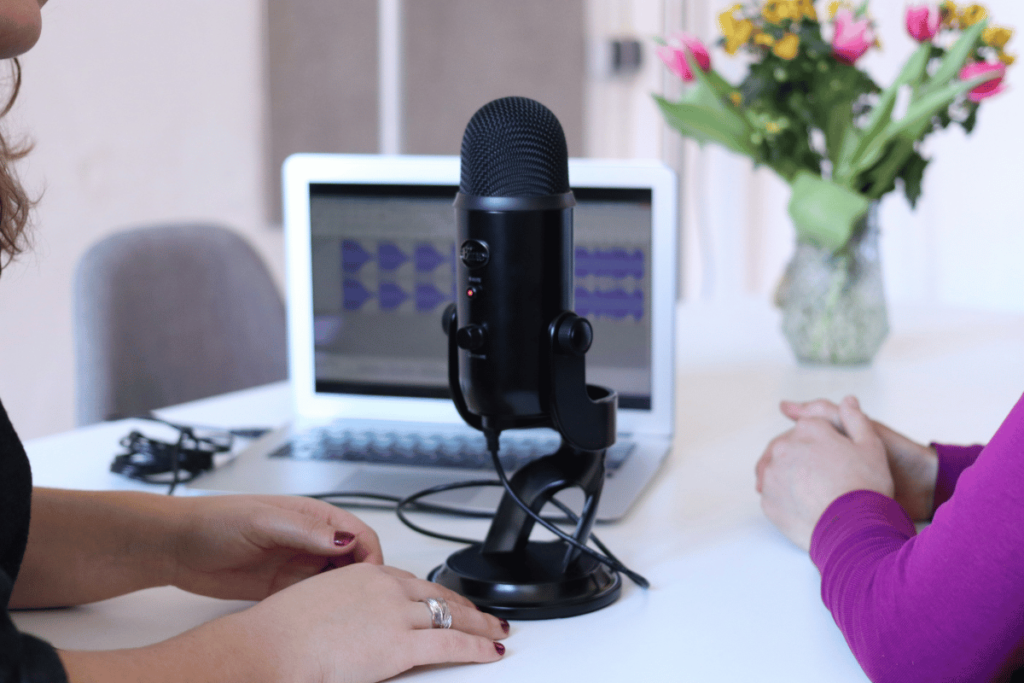
Essential Podcast Equipment for Beginners
When you’re starting podcasting, these 4 pieces of equipment should be at the top of the list.
Keep reading to find out more.
1. External Microphone(s)
While your built-in laptop or phone mic can work, it picks up echoes and unwanted noises, resulting in low-quality audio. So, level up your podcasting with an external microphone.
However, before investing in a podcast mic, check the audio quality, portability, ease of setup, seamless connectivity, and extra features.
As a beginner podcaster, you can consider plug-and-play USB mics like Samson Q2U and Rode NT-USB. They connect easily to your computer and offer seamless recording.
2. Headphones
Headphones are the next must-have for podcasters. They help you hear clearly when recording and adjust your tone or volume levels. Plus, they stop your mic from picking up unwanted noises (audio bleed or echo).
You’ll do just fine with any headphones you might have. However, consider choosing a pair of headphones designed for podcasting for the best audio quality.
It should have an adjustable fit and padded cushions to provide comfort for long recording hours. Go for wired headphones for an uninterrupted signal. Plus, check if they have noise cancellation features to cancel unwanted outside noises.
Pro Tip: If you still encounter unwanted noises in your audio, you can easily clean up your audio recordings.
3. Podcast Recording Software
Sometimes referred to as a Digital Audio Workstation (DAW), this tool lets you record, edit, and mix podcasts on your computer.
It’s crucial to check if the software supports local and multi-track recording. The software should also let you invite remote guests and record videos. Plus, it should have a mobile app to record podcasts with your phone.
Examples of podcast recording software are Audacity, SquadCast, and Spotify for Podcasters.
4. Camera
While modern phones have decent podcast filming capabilities, you might still need an external camera. When choosing your camera, check the resolution and the portability.
We recommend a Logitech C90 webcam or a dedicated podcast camera like the Nikon D5300.
Got all the equipment set; let’s proceed to how to record podcast audio.
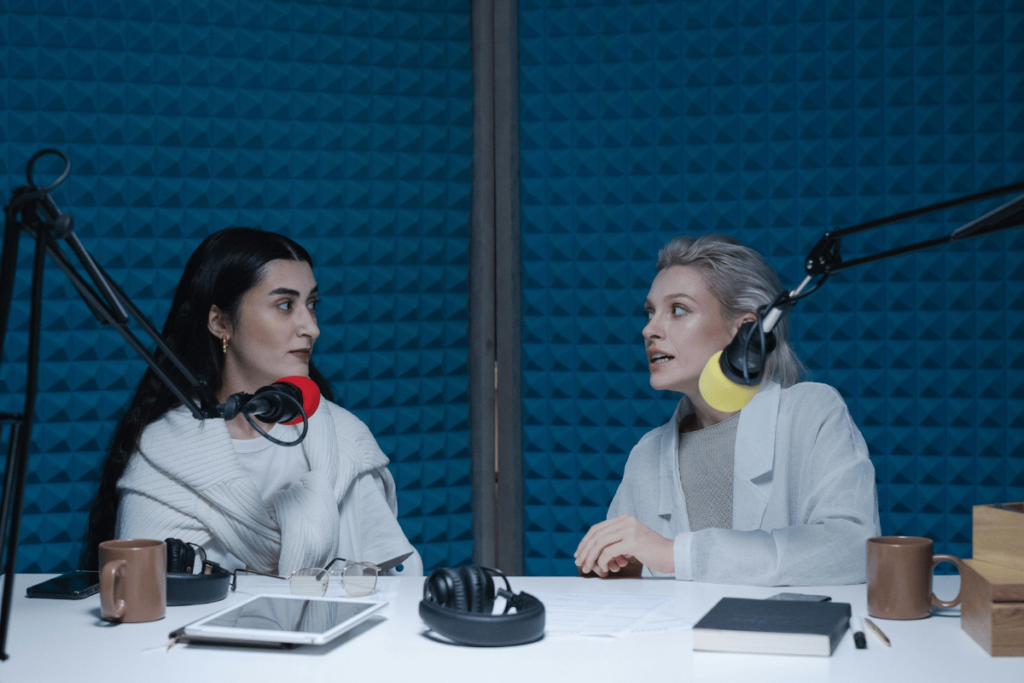
How to Record a Podcast
Now that you have all the podcasting equipment, it’s time to record a podcast.
We’ll walk you through the top 3 recording methods step-by-step.
How to Record a Podcast Remotely
You should be able to record a podcast from anywhere.
So, here’s how to record long-distance podcasts in 4 steps:
1. Choose and install a remote recording software: Not all software supports remote recording, so choose platforms like Alitu and Spotify for Podcasters.
2. Set up and test your equipment: Prepare and set up your mics, headphones, pop filter, podcast mixer, and laptop. Besides, test your external mics and headphones, and make sure they are connected to your recording software.
Review the audio quality and ensure all the participants can hear each other.
3. Invite Guests: Send your guests an invitation link from your software, asking them to join the show.
4. Start recording: You’re ready to hit the record button.
Note: Using software is the easiest way to record a podcast remotely.
Alternatively, consider the double-ender method, which allows you and your remote guests to record audio or video locally without relying on the internet. Afterward, you can put together each separate audio track.
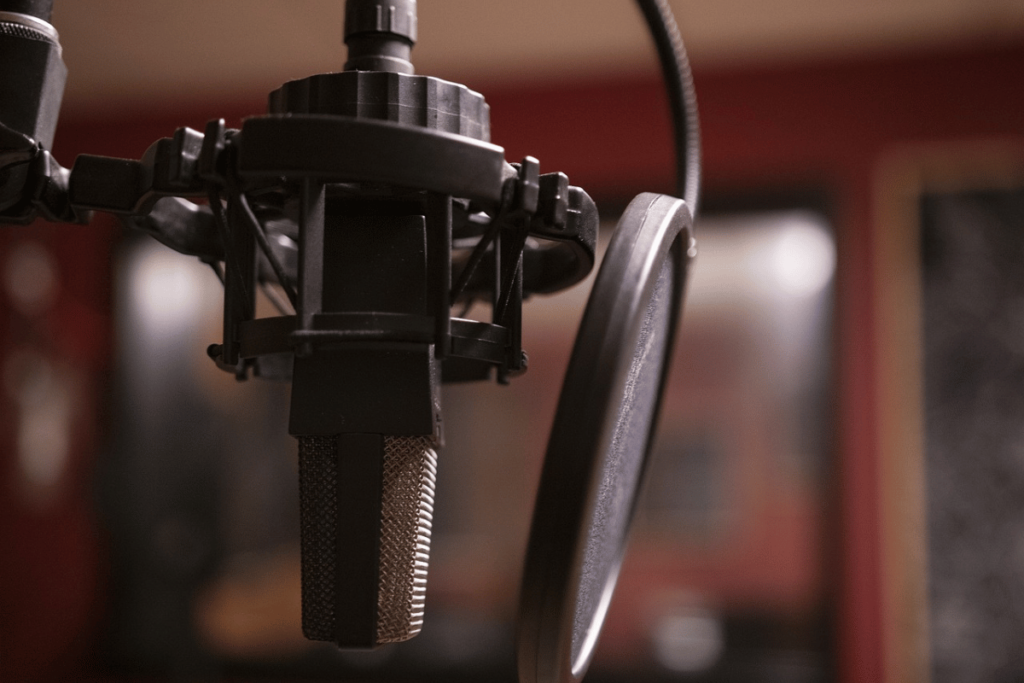
How to Record a Podcast on Zoom
Zoom is a popular recording option because it allows remote, video (and audio) podcast recording.
Recording a podcast on Zoom is super easy with these six steps:
1. Install Zoom: Download Zoom on your laptop or other device. On the free tier, you can only record up to 40 minutes (you can upgrade if you want longer interviews).
2. Choose a quiet recording environment: By default, Zoom turns on the echo cancellation feature, but you must turn off fans or other noisy appliances. Also, alert everyone so that they don’t interrupt you.
3. Set up your mics and headphones: While you can opt to record using Zoom’s default mics, external mics and headphones elevate your sound quality.
4. Set separate audio tracks: Go to Zoom settings and select ‘Record a separate audio file for each participant.’
5. Prepare your guests: Give your guests tips on using Zoom and do a test before you begin recording. Tell them how long the recording will last and what podcast questions and topics you’ll discuss.
6. Start recording: Send invitation links to your guests and click ‘Record’ to start recording your podcast session.
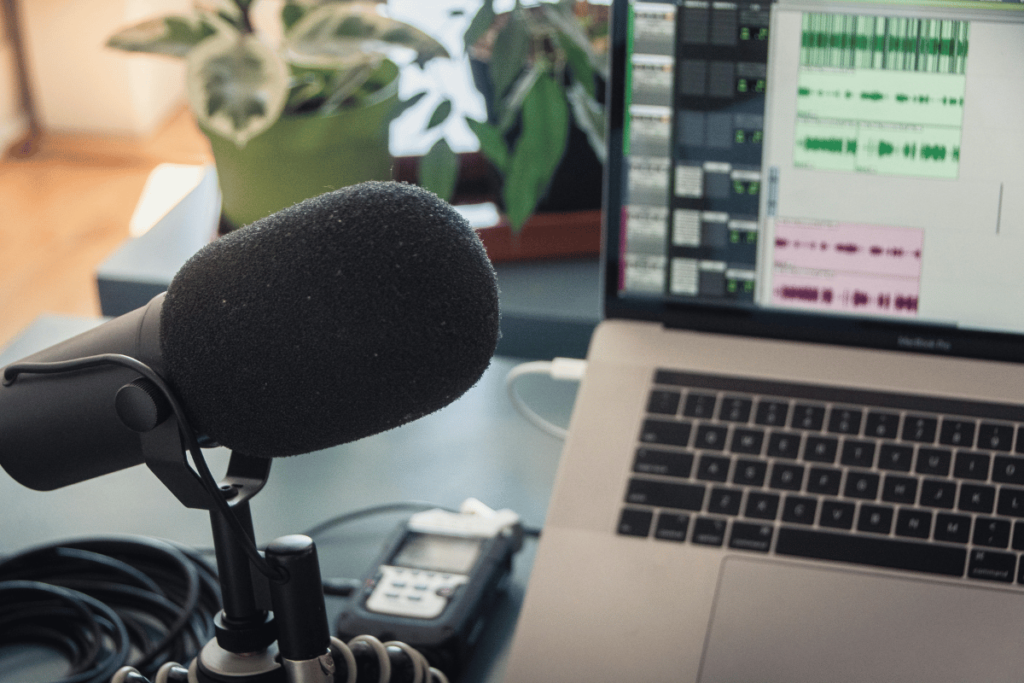
How to Record a Video Podcast
If you’re an audio podcaster and want to add visual content, it’s easier than you think.
Follow these 4 steps to record a studio-quality video podcast:
1. Set Up Your Camera(s) and Light
First, mount your camera on your tripod or set up multiple cameras. Make sure the framing is correct. If you’re recording on the phone or webcam, wipe the lens with a dry cloth to remove dirt marks.
Don’t forget to arrange the lights on your set and connect your mics and headphones to your podcast mixer (if you’re using one).
2. Decorate Your Set
Next, ensure the ambiance is appealing and engaging for the audience. So, make the space more lively with artwork and incorporate your brand elements in your mic and chairs.
3. Install Reliable Recording Software
Should you choose to record a video podcast remotely, you must install remote recording software designed for video recording, such as Riverside and Soundtrap.
Your recording tool should offer a mobile app if you can record with your phone. Once installed, invite your guests to join the show.
4. Start Recording
Lastly, test the quality of the video and make sure everyone can hear you. Then, hit record on your camera.
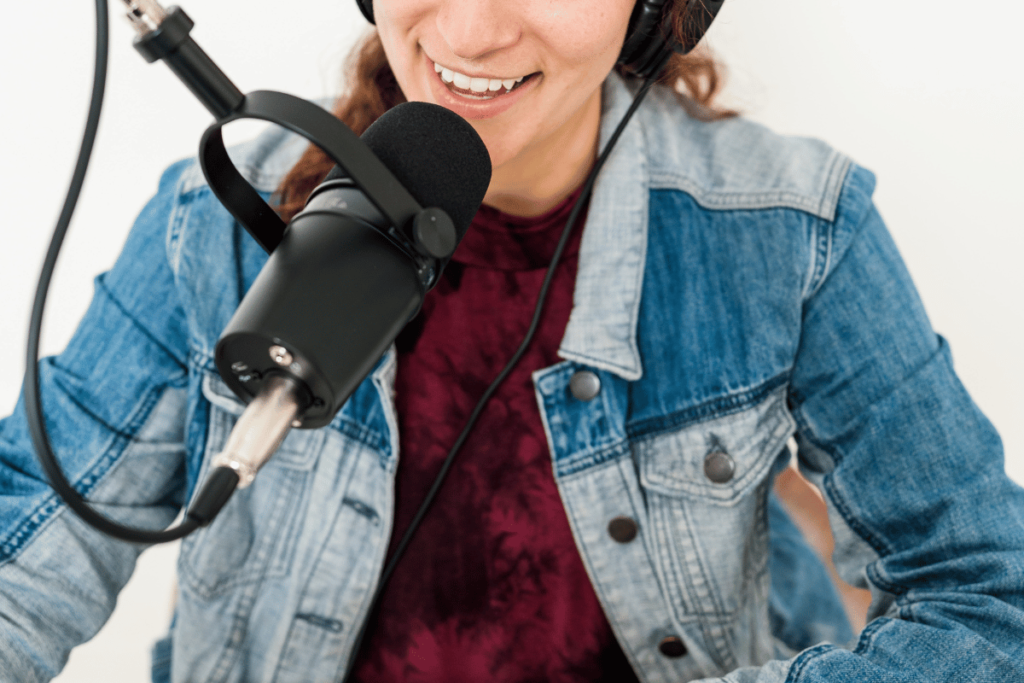
Must-Have Podcast Recording Tools and Software
Are you new to podcast recording?
Here are the essential tools and software for podcasting:
1. Hello Audio
Hello Audio tool is the top podcasting software if you want high-quality podcasts without the hassle.
Check out the key features below.
Pros
- Allows you to convert long-form video and audio like webinars, events, call meetings, presentations, and digital courses into private podcasts in minutes.
- Integrates pre- and post-roll content to create personalized listening experiences.
- Offers detailed analytics so you can understand the listening behavior of your audience
- Lets you publish and distribute your podcast on major platforms like Spotify, Google Podcast, and Apple Podcast.
- Segments and targets the right listeners using tags.
Want to take Hello Audio features for a spin? Book an instant demo.
2. Adobe Audition
Next on our list is Adobe Audition, which is popular for its comprehensive editing tools.
Here are the positives and the negatives of this tool:
Pros
- Has a library of royalty-free music and effects
- Ability to record separate tracks
- Offers advanced editing functions
- Has templates to make recording and editing easy
- Ability to restore audio content
Cons
- No remote recording capabilities
- The monthly fee can be a little pricier
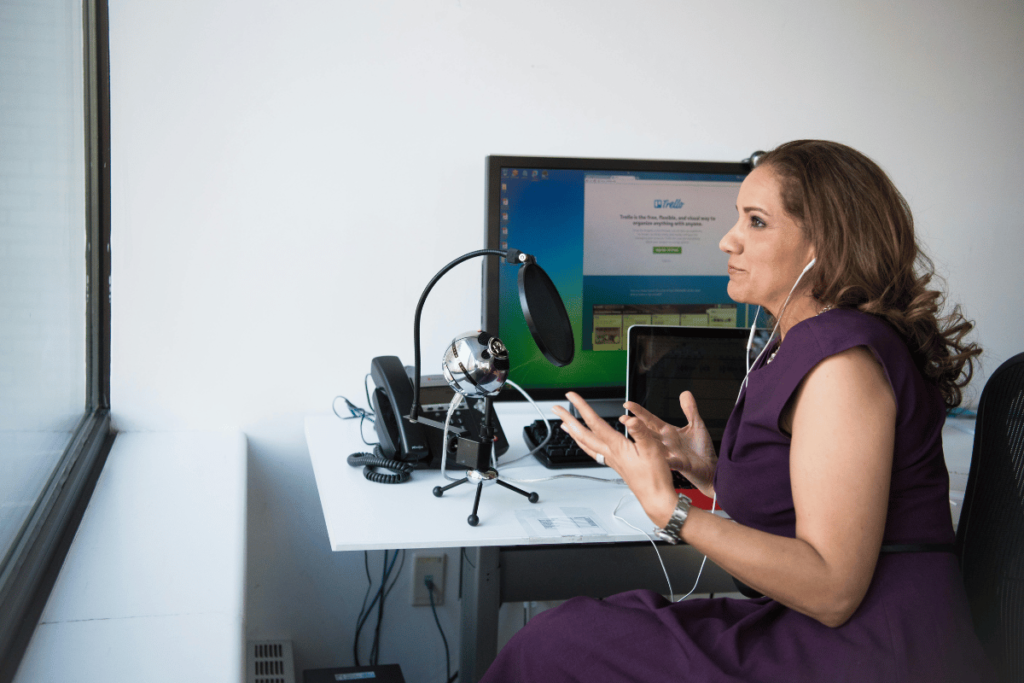
Best Podcast Recording Software
Need help choosing a recording software?
Let’s list 5 software programs you should look into:
- GarageBand
- Audacity
- Riverside
- Spotify for Podcasters
- Hindenburg Journalist
Best Podcast Recording Tools
Step up your podcasting with additional equipment to help you create polished content for your listeners (and viewers).
Read on and see our list of the 4 best podcast tools:
1. Pop Filters
While you can podcast without a pop filter, it’s an easy (and cheap) addition. So, get a pop filter to avoid the plosive sounds — ‘p’ and ‘b’ sounds.
2. Microphone Stand
A microphone stand frees up your hands and secures your mic. You can maximize your audio quality, prevent your mic from getting damaged, and confidently record your show.
3. Podcast Mixer
Ideally, you need a podcast mixer to help you add music and effects in real-time when recording a live podcast. Consider a podcast mixer that doubles as an audio interface, has multiple inputs, and supports multi-track recording.
4. Lighting
When creating video, lighting can make or break the quality of your content. Besides, natural lighting can be unpredictable and hard to control. So, shop for a lighting kit.
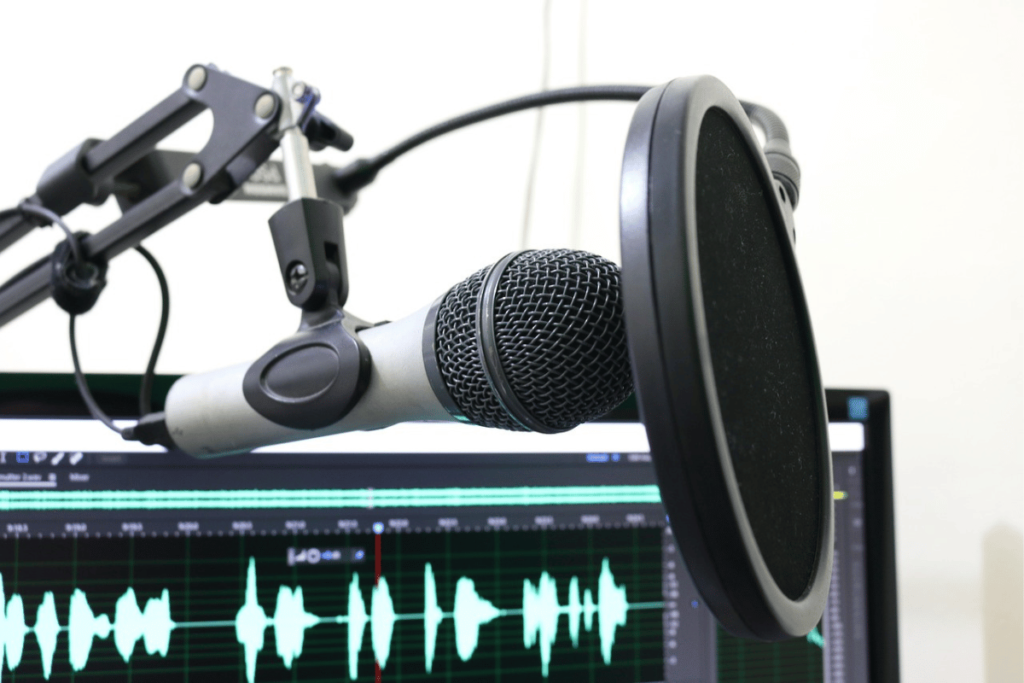
Frequently Asked Questions (FAQs)
Check out our FAQ section, where we will answer the common questions about recording podcasts:
How Long Does it Take to Record a Podcast?
The short answer is — it depends. The timings of recording an episode vary from one podcaster to another. Typically, recording podcasts can take only 15 minutes, while others take 60 minutes or longer.
How do I Record a Podcast with Two 3.5mm Microphones?
One option is using an adapter like Rode AI-Micro to plug two 3.5 mm mics together. The second option is to use a podcast mixer with two microphone inputs and split the audio into two separate tracks.
Can You Record a Podcast with AirPods?
You can record your podcast with AirPods. However, AirPods microphones don’t provide clear audio.
So, while you (and your guests) likely have a pair of AirPods, don’t use them for podcast recording. Invest in an external podcast microphone instead.
Can You Record a Podcast On Your Phone?
Absolutely yes! You only need a microphone, headphones, and a podcast recorder app to easily record and publish your audio from your phone. Check if your equipment and app are compatible with your phone for a seamless recording experience.
Conclusion
We hope you have all the information you need to create your first podcast.
As a recap, you can record your podcast remotely, record your podcast on Zoom, or record a podcast video. Follow the steps outlined in these methods, and you’ll record your podcast like a pro in no time.
Alternatively, you can skip these processes and repurpose your long-form video and audio content into custom podcast feeds in minutes. Hello Audio automatically publishes the audio on leading channels like Spotify and Apple Podcasts, so your audience can listen to it on the go.
Start with our free 7-day plan (no credit card required), and discover a user-friendly way to host your podcast.

